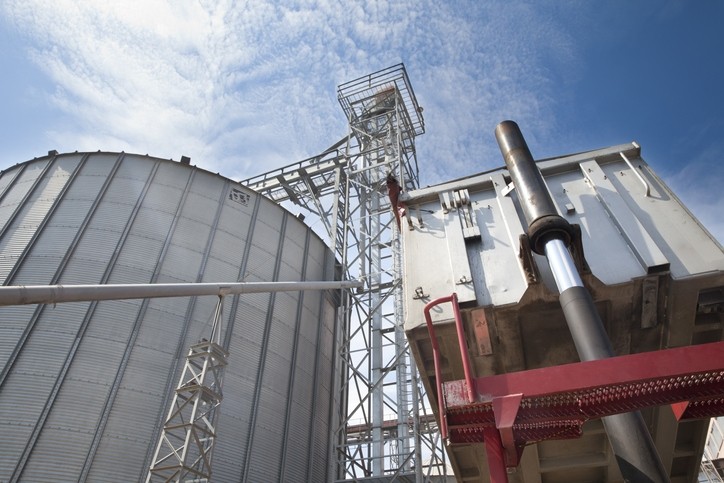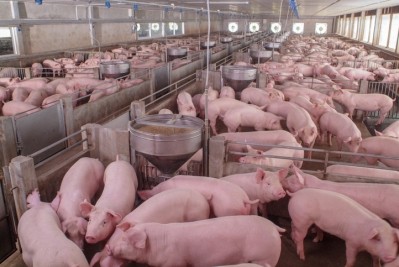‘The impact on the industry, both directly and indirectly, of further outbreaks of something like ASF are huge’

EU feed manufacturers’ federation, FEFAC, and its Romanian member association, ANFNC, co-hosted the event in Bucharest on Thursday February 21, against the background of an outbreak of ASF on pig farms in Romania.
Why did FEFAC deem it necessary to run this workshop now?
“We felt that we should highlight the role FEFAC plays and share the biosecurity measures and best practice that a number of our members and put in place, and also hear from the European Food Safety Authority (EFSA) and DG Santé in terms of what the latest thinking is regarding the potential vectors for virus transmission,” said Nick Major, president, FEFAC in an interview with this publication on Tuesday.
“Clearly we have people and vehicles going up farm drives. In a disease outbreak situation, then all feed companies have their protocols in place in terms of putting good biosecurity in place as people and the clothes they are wearing and vehicles can be a vector. So that is one level of biosecurity. Clearly, the second element, and we, like others, have been reading some of the reports from Kansas State University (KSU), is whether the feed materials themselves, could be a vector. We will follow EFSA opinion on that. It is now mandated to look at a number of matrices in terms of virus transmission,” continued Major.
EFSA is to carry out risk assessment of different types of feed, forages and certain feed ingredients used in commercial feed. “That will include hay and stray and coarse feed materials, additives, etc," explained Major.
The EU risk assessor has just put out a call for evidence on this. EFSA’s review will take into account scientific research published since 2014 as well as industry studies and analysis of trade flows of feed ingredients.
Good biosecurity practice at feed mills
Over 80 feed industry representatives from mainly Romania and neighboring countries and also from many other EU countries were present at the Bucharest workshop. They heard about how good biosecurity practice at feed mills can contribute to control and prevent dissemination of viruses, against the backdrop of further spreading of ASF in Romanian pig farms.
“We had examples of best practice from a number of members in France, in the Netherlands, Hungary, and we had a veterinary surgeon from Romania and the Czech Republic showing the steps that feed business can take in terms of good biosecurity, whether that is at the mill, in terms of good hygiene measures, in terms of receipt of raw materials on lorries into the mills, and, obviously, the steps that are been taking for deliveries onto farm.”
Given that the event was taking place in Romania were the disease is present Major said consideration was also given to control measures needed to prevent the virus from spreading further in a region, as well as being mindful of actions required to stop the virus entering a country in the first place.
“The workshop was open and constructive. Everybody understands the seriousness of the situation and the role they can play in limiting the transmission of the virus, because, clearly, the impact on the industry, both directly and indirectly, of further outbreaks of something like ASF are huge,” said Major.
FEFAC, he said, has very close links on this issue with its colleagues in Australia, in Canada, and in the US. “So we are also tuned in to the global discussions on these kind of issues.”
Recommendations
From the bulk of information provided, FEFAC it will now move to identify best practice and generate a common set of principles as well as highlighting actions that industry might not think about that could potentially be a vector for disease, said Arnaud Bouxin, deputy secretary general, FEFAC.
The trade group will publish the guidance at the end of June.
Bouxin stressed that biosecurity is the responsibility of the entire supply chain, not just feed mills. Good practice all along the chain rather than looking at ways to correct issues at the end of the supply chain is the best strategy, he said.
"If you look at the EFSA website today, it is clear when they rank the different origins of risk for ASF, it starts with humans, with wild boars and hunting, it starts with transport. When it comes to feed, you can hardly see it in the EFSA ranking. That does not mean we should not do anything," said Bouxin.
"Vehicular transmission is understood and we think there is a much higher risk associated with that than feed or feed materials," added Major.








